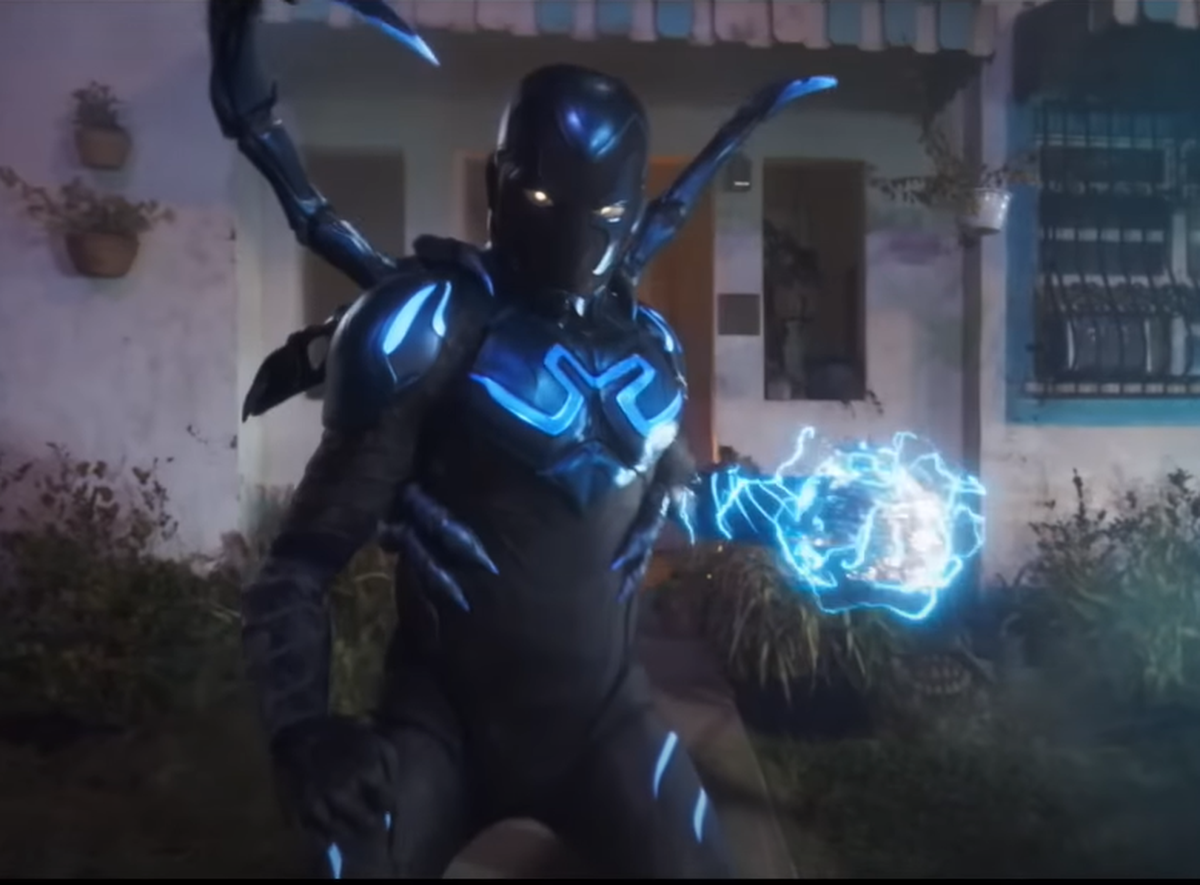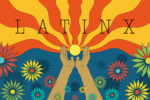Spoilers for “Blue Beetle” ahead!
Representation in the media is incredibly fickle. At least, it seems that way because Hollywood has historically either not viewed representation as desirable or entrusted the responsibility of proper representation to producers and directors disconnected from specific cultures, religions, sexualities, etc.
DC’s “Blue Beetle” (the latest attempt at a soft-reboot of the DC Cinematic Universe) represents the first-generation Mexican American experience with an overwhelming amount of respect, attention to detail, accuracy and, above all, love. But such accuracy — such vibrant, unabashedly proud representation — isn’t the norm, especially within a genre that hasn’t always embraced diverse experiences. Because of the film’s novelty, a few moviegoers feel that the creative team behind “Blue Beetle” shoehorned Mexican American representation into the film to “fit an agenda.”
“Blue Beetle” is the first live-action, Latino-led superhero movie. The movie follows main character Jaime Reyes, played by Xolo Maridueña, who returns home after college graduation with confidence that his future is full of potential. His optimism, unfortunately, is easier felt than experienced, as Jaime’s homecoming isn’t quite what he expected. The Reyes family is losing their house due to rising costs, and (surprise) Jaime’s college education didn’t do much to help his family’s financial situation. While seeking out job opportunities, Jaime crosses paths with his friend Jenny Kord, who gives him a biotechnology for safe-keeping. The alien scarab, known as Kahji-Da, chooses Jaime as its symbiotic host, granting him the powers of the Blue Beetle.
Reviewers called the film a “huge surprise,” praising the film’s action, heart and specific touchstones of Latino culture. Mexican culture is incredibly present throughout the entire movie, and the film’s director Angel Manuel Soto made an active effort to hire both Mexican American and Mexican actors. The film also boasts a vibrant, ‘80s-inspired blue and purple color scheme and staple Latino songs like “Atrévete-te-te,” “La Chona” and “El Rey” that have gone triple platinum in many Latino households.
Twitter users (or X–ers?) also praised the film for its accurate representation. Carlos Aguilar wrote, “Impressed by the pop culture details & historical references in BLUE BEETLE. From MACARIO, to CRONOS, and El CHAPULÍN COLORADO. But even more so that the infamous School of the Americas is integral to the story. This is the work of filmmakers who know & care about Latin America.”
Of course, not everyone praised the film. Some reviewers called the movie “another generic superhero movie,” while others felt that the film wasn’t “groundbreaking,” especially in an era where superheroes inundate the media.
However, one review that has been making waves comes courtesy of YouTuber Nerdrotic. In the video, he and his incredibly “diverse” panel criticize the movie for basically being too outwardly Mexican. The panel primarily complained that “Blue Beetle” shoved Jaime Reyes’ identity in the audience’s face every single chance it got. Did Jaime Reyes really have to get tacos? Did Milagro, Jaime’s sister, have to mention that their grandmother taught them how to make salsa? Why did Uncle Rudy name his Tacoma “Taco”? There’s no way people actually mispronounce Latino names. We get it, they’re Hispanic. Do we really have to see their culture in every single scene?
When I was really young, I thought everyone was Mexican. Like, everyone. Even the Barbie dolls I had for a brief period in my life (they’re probably playing Julieta Venegas’ songs in Barbie Land right now.) I thought everyone was Mexican for the sole reason that my entire family is Mexican. My entire town was Mexican. The food I ate was Mexican. The shows I watched were Mexican. Everything. Was. Mexican. That was normal to me. I grew up with and enjoyed my culture; it has kept my heart beating.
So seeing “Blue Beetle” — seeing George Lopez play Uncle Rudy, the tío who knows how to fix everything; seeing the whole family show up to send off Jaime to find a job at Kord Industries; seeing Jaime come back from college and immediately ask to eat some tacos after being away from home so long; seeing portraits of the Virgen de Guadalupe; seeing Uncle Rudy nickname his Tacoma truck “Taco”; seeing the “Puro Sonora” decals on the truck’s windshield; seeing the familial bond — was like looking in a mirror. I saw my entire life in that movie. All of my experiences growing up. I saw it all. Promises made and unfulfilled. Promises made and kept through the next generation.
All of the film’s details felt normal to me, to us Mexicans and Mexican Americans. They are our way of life, and they will probably continue to be our way of life for many generations to come. However, when white is the norm, anything outside of the norm feels forced, unnatural and uncomfortable for people whose viewpoints are limited — purposely or not.
Nowadays, people accuse everything that falls outside of the typical white, U.S.-centric, middle-to-upper-class perspective of trying to fit an agenda. Even when Latino actors write and direct films like “Blue Beetle.” Apparently, the world is not allowed to showcase its diversity. People must conform and stay quiet.
There isn’t — and shouldn’t be — a set-in-stone, detailed step-by-step plan when it comes to representation. The only necessity is that representation must originate from a place of deep respect. And courage. Endless courage, because change will always be uncomfortable — representation even more so. “Blue Beetle” may not make a billion dollars at the box office, but it will hopefully inspire many more films to emulate its unashamed portrayal of Mexican culture. To be culturally rich is a privilege; to be proud is a right.
















